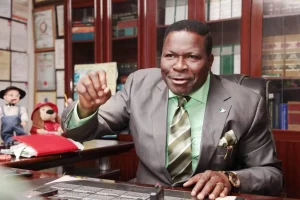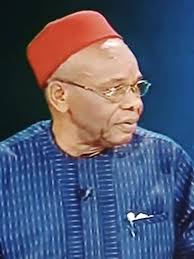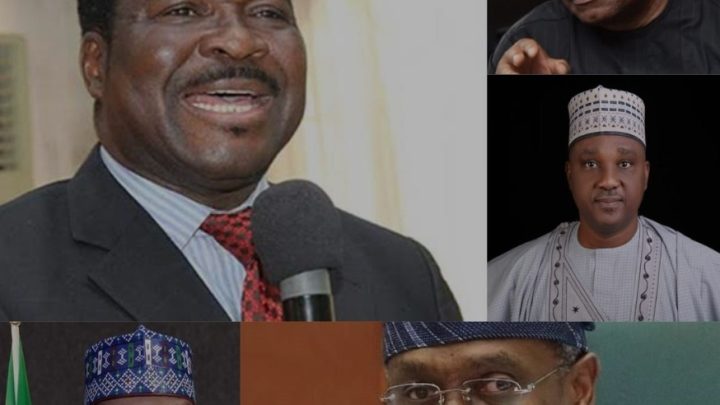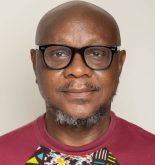By Fred Itua
N2 trillion in two decades with little to show
Since 2003, when President Olusegun Obasanjo introduced Special Intervention Projects (SIP), or constituency projects, into Nigeria’s budget framework, more than ₦2 trillion has been allocated. Unfortunately, however, a large portion of these funds have been stolen through contract heists orchestrated by members of the National Assembly.
Over the years, the blatant criminality and impunity are often treated with levity by the government and the public has only reacted with little outcry, leading to substantial financial losses for the country year after year.
Our investigation has exposed a flourishing network of collusion within the federal government where heads of ministries, departments, and agencies (MDAs), legislators, legislative aides, committee clerks, and pseudo-contractors come together to siphon public funds.
Their method? Inserting insert ghost projects into annual budgets—projects that never exist but receive full financial allocations. These funds are then pocketed by members of this cartel, with non-existent projects marked as “completed,” using fake documents signed off by complicit officials.
These contracts are often handled by companies linked to family members and political allies, reinforced by ceremonial oversight visits that barely scratch the surface of accountability, thereby creating an unending cycle of deceit.
As one of the three arms of government, the National Assembly plays a crucial role in Nigeria’s administration, alongside the Executive and Judiciary. Scholars who value parliamentary democracy recognise the National Assembly as first among equals.
According to the amended 1999 Constitution, lawmakers have a threefold duty: lawmaking, oversight, and representation. Yet while Nigerians tend to focus on representation and lawmaking, oversight has often been neglected—a lapse that, over the past two decades, has left a legacy of misappropriation, unmet needs and sad stories from constituents who are the real losers in the padding game.
Section 4 (2) of the Constitution, which defines the role of the National Assembly, says: “The National Assembly shall have power to make laws for the peace, order and good government of the Federation or any part thereof with respect to any matter included in the Exclusive Legislative List set out in Part I of the Second Schedule to this Constitution.
Section 88 states: “Each House of the National Assembly has the power to investigate (a) any matter over which it has legislative authority; and (b) the conduct of any parastatal or official responsible for administering any Act of the National Assembly or disbursing funds.” This investigative power is intended to help the Senate or House of Representatives (a) make laws on matters within its legislative scope and correct flaws in existing laws; and (b) expose corruption, inefficiency, or waste in the implementation or administration of laws.”
The roots of budget padding
The phrase “budget padding” gained notorious prominence during President Olusegun Obasanjo’s administration. At the beginning of the Fourth Republic, the National Assembly became repeatedly embroiled in budget padding scandals, with allegations of lawmakers accepting bribes to inflate project budgets and taking financial incentives to confirm presidential appointees.
One major example occurred in 2004 when a scandal involving N55 million erupted in the Senate. Several senators accused then-Senate President Adolphus Wabara of overstepping his authority by authorising contracts without the knowledge or consent of the appropriate Senate committees.
You can also read – Road to Extortion: How Security Forces Prey on Travelers Along Lagos, Cotonou, Lomé, Accra Route – Part I
Shortly after the scandal surfaced, President Obasanjo addressed the nation and condemned the pervasive corruption in the Senate and the House of Representatives. He alleged that the former Senate President and the Committee Chairmen on Education in both legislative houses had accepted a bribe of N55 million from then-Minister of Education Fabian Osuji to inflate the Education Ministry’s budget for the 2005 fiscal year.
The allegation by former President Obasanjo led to the resignation of Professor Osuji as minister of Education, while Wabara also resigned as Senate President in April 2005; six months after the scandal hit the airwaves.
In 2003, then-Minister of the Federal Capital Territory, Abuja, and former Governor of Kaduna State, Nasir El-Rufai, accused some senators of demanding bribes in exchange for his confirmation. The allegation prompted the Senate to establish a committee to investigate the matter. However, the findings of this probe, like many others, remain buried in the archives of the National Assembly.
Since then, “budget padding” has become a notorious part of Nigeria’s parliamentary language. Each year, accusations arise that lawmakers unlawfully insert personal or fictitious projects into the national budget, yet anti-corruption agencies seldom arrest or prosecute those involved, despite clear evidence.
During the 8th National Assembly, the controversy escalated when Abdulmumin Jibrin, then Chairman of the House of Representatives Committee on Appropriation, openly accused Speaker Yakubu Dogara and three other senior House officials of padding the 2016 budget by over N40 billion. The accused included Deputy Speaker Yussuff Lasun, Chief Whip Alhassan Ado-Doguwa, and Minority Leader Leo Ogor. Jibrin claimed that several favored committee chairmen and members had also received padded projects in the budget.
In response, Dogara dismissed the accusations, insisting that the National Assembly acted within its legal rights and asserting the legislature’s independence. “The law is there,” Dogara argued, “If the legislature is not independent, we can’t do anything… The budget being a law means that only the parliament can make it because it is law. I challenge everyone, including civil society, to show where it’s written that the President can make the budget.”
Despite Dogara’s detailed defense, Jibrin persisted in his allegations, eventually filing petitions with the police and anti-corruption agencies to investigate. The ruling All Progressives Congress (APC) ultimately intervened, instructing both parties to cease further public disclosures, as the conflict was becoming an embarrassment. However, the investigations launched into Jibrin’s claims were eventually abandoned.
Again, in 2018, a former chairman of the Independent National Electoral Commission (INEC), Professor Attahiru Jega, openly accused members of the National Assembly Committee of demanding and taking bribes when exercising their oversight functions. He, therefore, warned of the need to act decisively on corruption issues to avoid the danger of turning the little gains made in the anti-graft war “into drops in the ocean.”
Anatomy of budget padding
In both the Senate and the House of Representatives, the Appropriations Committee is highly coveted. At the start of each legislative session, lawmakers actively lobby the Senate President and the Speaker of the House for appointments as chair, vice-chair, or members of this influential committee.
A clerk from the National Assembly’s bureaucracy heads the committee’s Secretariat, working closely with the Appropriations Committee chair throughout the entire budget review and approval process. This partnership is crucial during the budget defense phase, where the chair and clerk coordinate closely to manage the proceedings.
During budget defense, other standing committees of the National Assembly defer to the Appropriations Committee as the lead body, submitting their reports for review. If the powerful Appropriations Committee chair is unsatisfied with the explanations provided by colleagues who lead other committees, they can unilaterally remove projects or unauthorised budget items.
Many including lawmakers themselves have claimed that projects worth billions of naira, often without specific locations, are added to the budget with the knowledge of the implementing ministries, departments, and agencies (MDAs). In some cases, staff from these MDAs insert projects into the budget themselves, taking advantage of moments when lawmakers are not vigilant.
“When the budget is passed and funds are released for those fictitious projects illegally inserted into the budget, clerks who are heads of committees at the bureaucratic levels, take custody of the funds from the MDAs on behalf of lawmakers.
“The clerk disburses the funds based on instructions from the committee chairman. They can deny, but they know the truth,” a staff in one of the committees, who spoke in confidence revealed.
Giving more chilling details, the staff continued, “There are instances where billions are budgeted for a research institute that is obscure and has never conducted anything. That’s why you go to some villages and communities and you see road projects executed by agricultural institutes. These lawmakers push these funds into these areas that people don’t look at.
“Research institutes build town halls and classrooms. Ordinarily, they’ve no business with these things, but lawmakers found a clever way around the administration of President Muhammadu Buhari. For anyone who is in doubt, they can find out independently.
“That’s why you see chairmen of powerful committees, get as much as N15 billion annually for fictitious or sub-standard constituency projects. The method I’ve explained above is what they adopt. Lawmakers who aren’t ‘smart’ hardly get up to N200 million to do anything in a whole year.”
Reports indicate that officials in the Ministry of Finance, responsible for disbursing funds, are often aware of budget padding and illegal insertions made by lawmakers. Similarly, anti-graft agencies, such as the Independent Corrupt Practices and Other Related Offences Commission (ICPC), are aware of these practices but are frequently pressured into ignoring them.
At times, the Ministry of Finance withholds funds, leading to quiet but tense standoffs between the Finance Minister and National Assembly leaders. When funds are withheld, the National Assembly’s standing committees often respond with summons or subtle threats. Once the disagreements are resolved, these tensions quickly dissipate, and any related investigations lose momentum.
For example, the approved 2020 budget was initially set at N10.33 trillion but surged to N10.81 trillion after lawmakers added an extra N480 billion, representing roughly 4.8% of the total fiscal year budget.
In 2021 where the government budgeted N13.08 trillion, members of the National Assembly were accused of padding it by around N500 billion—about 6% of the total budget intended to support a population exceeding 200 million. Additionally, anti-graft agencies reported that in the 2022 budget of N17.12 trillion, some Ministries, Departments, and Agencies (MDAs) had duplicated projects totaling N100 billion.
Offering perspective, a former South-east governor said that lawmakers have the authority to reallocate projects, but he emphasised that inserting fake projects is a criminal offense that should warrant accountability from anyone involved.
“Budget padding—though I don’t fully agree with the term—is nothing new,” he said, “ and allegations against National Assembly members have become common. We must remember that lawmakers control the purse strings; we’re not a rubber-stamp Parliament unable to examine the budget we receive.”
“What people call padding is what we call reallocation of priorities in the budget. We relate with the people at the grassroots and we understand what they want. And we need to tailor the budget to meet their needs.
“As for the illegal insertions and other fraudulent aspects they’re alleging, the relevant government agencies can investigate and do the needful.”
Questionable constituency projects
While Nigerians have come to accept constituency projects as defined by the National Assembly, these projects have no constitutional basis. Many lawmakers argue that constituency projects are intended to extend the benefits of democratic governance to people and also foster grassroots development across the country.\
BudgIT Tracka reported that between 2009 and 2019, over N1 trillion was allocated to constituency projects in Nigeria. By 2019, they had tracked 15,859 projects across 7,589 towns, with 7,000 completed across 26 states. However, more than 200 projects worth billions of naira were either abandoned or left uncompleted.
Lawmakers often argue that without these constituency projects, many villages and towns in Nigeria would miss out on the benefits of democratic governance. Conversely, others have called for the outright cancellation of these projects, questioning their effectiveness.
Our correspondent spoke with contractors handling constituency projects, who revealed that lawmakers often bypass due process to control these projects. It was found that over 90 percent of lawmakers in both the Senate and the House of Representatives rarely consult their constituents about the types of projects they want before making decisions.
Lawmakers frequently choose small-scale projects, while allocating large budgets to them. Popular choices include classrooms, town halls, unequipped health centers, rural roads, and empowerment programs—these top the list of projects lawmakers typically select.
Despite criticism, the 2023 budget allocated several projects to Surulere Federal Constituency, including the construction of Blocks A, B, C, D, E, and F at Femi Gbajabiamila Senior Secondary School, Itire, Lagos with each block budgeted at N200 million, and an ICT center at the school budgeted at N250 million.
The budget also included provisions for “installation of all-in-one solar-powered streetlights across five local government areas in Delta Central Senatorial District with each community project set at N200 million. Additional allocations included N1.5 billion each for constructing blocks A and B at Federal Polytechnic, Orogun, Delta State, and N1 billion for an administrative building there.
In Yobe North Senatorial District, the 2023 budget allocated N150 million for installing a solar-powered borehole for Fulani settlements, N120 million for purchasing tricycles, N600 million for solar light installations, and N188 million for concrete drainage construction. These allocations were made while Ahmad Lawan served as Senate President and Femi Gbajabiamila as Speaker of the House of Representatives.
Further investigations revealed that the funds are usually domiciled in key MDAs. One of the leading MDAs that warehouses billions earmarked for constituency projects is Border Communities Development Agency (BCDA).
You can also read – Road to Extortion: How Security Forces Prey on Travelers om Lagos, Cotonou, Lomé, Accra Route – Part II
A visit to the BCDA’s vast building in Abuja’s Utako District reveals an unsettling reality. Originally established by an act of parliament as an interventionist agency tasked with developing border communities through planned and sustainable projects, the agency has shifted its focus to executing constituency projects on behalf of National Assembly members.
By design, lawmakers are only supposed to recommend projects, while the relevant MDAs (Ministries, Departments, and Agencies) are responsible for executing them. However, this arrangement has been compromised.
Evidence shows that lawmakers pressure agencies like the BCDA to award contracts to their preferred companies. The agencies, faced with persistent demands, have conceded. Often, lawmakers use special aides or relatives as fronts to bid for and secure these contracts. Once funds are released, the contracted companies are expected to provide financial kickbacks to the lawmakers, depending on the project size.
Furthermore, it was discovered that the supervising agencies overseeing these projects rarely visit the sites to confirm the progress of work before making final payments. Instead, they rely on photos and videos provided by contractors, which are sometimes manipulated to secure payment approvals.
A staff member from one such agency explained that contractors often cite security risks as reasons for not allowing site visits, thus persuading the agency to accept visual evidence as proof of project completion.
Asked if they get gratification by the contractors, the staff who is not authorised to speak on the issue, said they’re usually paid a fee that covers their travel expenses, even when they don’t visit. The staff refused to put a figure to it.
It was, however, confirmed that between two to three percent of the contract sum, is usually offered in return for favourable report on project not visited or ascertained.
Another worrisome twist to the constituency project saga is the sub-standard nature of the facilities provided by lawmakers. A visit to some sites by our correspondents, revealed a disturbing trend.
Many roads constructed under the National Assembly’s constituency projects struggle to withstand even a single rainy season, often washing away within less than two years of completion. Though drainage systems are budgeted for, they are rarely included, leaving the roads vulnerable to heavy rains.
Similarly, classrooms and health centers built under constituency projects also suffer from substandard construction, with roofs, walls, and ceilings collapsing after only a few years, leaving constituents to bear the costs of repairs.
In Iruekpen community in Esan West, Esan Central, and Igueben Federal Constituency, a road built near the Catholic Church under this arrangement in 2019 was destroyed by heavy rains within a year.
In the same constituency, the Emuhi road project was left unfinished. When this correspondent visited, the poorly constructed portion had already collapsed, forcing the people to use alternative routes.
It was further discovered that a good percentage of funds realised from the proceeds of constituency project are often spent in repaying loans secured to run for elections. Only a very little percentage of the funds are made available to constituents.
Ceremonial oversight visits
Oversight visits are a central responsibility of lawmakers, alongside lawmaking and representation. Until 2015, these visits—though often criticized as superficial—were a tool used by National Assembly members to expose fraudulent projects and financial misconduct by heads of MDAs.
After President Buhari’s administration began in 2015, lawmakers have largely abandoned meaningful oversight visits. The rise in insecurity across the country has worsened the situation. Outside of Lagos, Abuja, and Rivers State, lawmakers rarely travel to project sites or conduct oversight visits in other states.
Besides, even with geometric increases in budgetary allocations, National Assembly standing committees still complain about lack of funds to carry out serious oversight functions and would rather rely on MDAs they supervise to pick their bills.
For example, it is widely known that only six standing committees in the Senate receive adequate funding, even though at least N11 billion is allocated each year for standing committees in both the Senate and the House of Representatives.
The six standing committees that receive funding are Services, Anti-corruption, Rules and Business, Public Accounts, Public Petitions, and Media.
Apart from the aforementioned committees, others rely on the benevolence of heads of MDAs to fund their oversight visits. In other instances, governors of the states where the oversights are conducted, foot the bills or support them financially. These include air transportation, hotel, feeding, logistics and financial gifts.
Under the leadership of Ahmed Lawan and Femi Gbajabiamila, journalists who could have reported on lawmakers’ oversight activities were completely excluded from the process, a departure from previous practices.
Many voices against legislative lawlessness
Many Nigerians have criticized the National Assembly for engaging in financial recklessness and alleged criminality linked to budget padding and the implementation of constituency projects.
Senior Advocate of Nigeria and constitutional lawyer Mike Ozekhome strongly criticizes the National Assembly for overstepping into roles designated for other branches of government.
“Budget padding is evil and straight from the depths of Lucifer’s hell. It is not only unpatriotic but harmful to the health and growth of the Nigerian economy. This is why Nigeria allocates 85% of its budget to recurrent expenditure,” he said.
“Budget padding by the National Assembly is an inglorious act of infamy which must be condemned by every Nigerian. Constituency project shouldn’t be part of legislators’ work. The government has three arms. The job of the legislature is to make laws under Section 4 of the Constitution.
“The job of the executive is to carry out or implement laws made by the legislature under Section 5 of the Constitution. The work of the judiciary is to settle disputes between persons and governments that will arise after making laws.
“The separation of powers was put in place for a healthy system. It is, therefore, very curious for the legislature, whose job is making laws for the good of Nigeria, to begin to scramble for constituency projects.
He criticized the lawmakers for engaging in projects like drilling boreholes and constructing facilities for communities while pocketing much of the funds.

Activist and Senior Advocate of Nigeria (SAN), Mike Ozekhome
He argued that when National Assembly members handle responsibilities that should fall to local or state governments, they undermine the roles of other government tiers, adding that the approach suggested that the executive could start making laws, or the judiciary could be assigned contracts to distribute relief items—a clear violation of constitutional boundaries.
On his part, the Executive Director of Civil Society Legislative Advocacy Centre (CISLAC), Auwal Ibrahim Musa (Rafsanjani), called on Nigerians to speak up.
“Nigerians must speak against this gross abuse of powers. The executive should take action,” Musa said. “You would recall that during the signing of the 2020 Appropriation bill into law in December 2109 by President Buhari, the new aggregate was about ₦10.6 trillion — a difference of about ₦264 billion from the ₦10.3 trillion he proposed.\
“In the 2021 budget cycle, the Nigerian President reluctantly appended his signature concerns that the 469 lawmakers that make up Nigeria’s Senate and House of Representatives inserted over 6,576 ‘new projects’ into the budget he submitted. So, the country’s apex legislature has so far inserted an additional N913.15 billion and N910.37 billion for capital projects in the 2021 and 2022 budgets, respectively. This has been a recurring theme in our budget cycles.
“This pattern of arbitrariness in the exercise of legislated powers has to stop or be stopped. These insertions seem to lack any sincerity of purpose- they constitute about 22 percent of the 2022 budget and should largely seat within the purview of sub-national governments.
“This has implications for lives of people who may be deprived of access to proper healthcare. There are potentially grave consequences to food security, climate-change mitigation and adaptation, housing and every other capital infrastructure that has to be sacrificed at the expense of the already 130 million impoverished Nigerians for the satisfaction of a few.
“The Nigerian legislature like all its other counterparts has an important role to play in shaping the annual budget and in providing budgetary oversight. When fiscal policies and medium-term budgetary objectives are debated in legislature and annual budget laws are adopted by the legislature, budget strategies and policies are “owned” by the elected representatives,” Musa said.
Enemhinye Socrates Ehigiator, law lecturer said it was criminal for lawmakers to illegally insert projects into the budget. He also rejected the yearly allocation of billions to fund constituency projects of lawmakers.
“Ordinarily, the National Assembly should act as a check to curb the excesses of the executive arm of government and when a budget is brought before the National Assembly, it ought to be for a thorough scrutiny, especially to eliminate wastefulness and not for them to craftily increase the proposed expenditure for the fiscal year, through the backdoor and unlawfully, which is called budget padding.
“It is my suggestion that there should be a specialised law to criminalise budget padding because it is a criminal betrayal of trust and offenders should be punished accordingly. I frown at the National Assembly members engaging in constituency projects because it goes beyond the prescribed oversight functions prescribed by the Constitution,” Ehigiator said.
Sunny Anderson Osiebe, Executive Director HallowMace Foundation, insisted that the Federal Government should come up with clear laws that will punish people involved in budget padding.
“In the last few years, the word ‘padding’ has gradually crept into Nigeria’s budgeting system and in less than five years or thereabout, it has now completely assumed a life of its own,” he said.
“Despite widespread public outrage over budget padding in 2021 and 2022, on November 5, 2022, Prof. Abubakar Rashid, Executive Secretary of the National Universities Commission (NUC), informed a joint Senate and House Committee on Tertiary Education and TETfund during budget defense sessions that the Ministry of Finance had inserted an additional N12 billion into the Commission’s 2023 budget,” Osiebe said.
Similarly, he said on November 17, 2022, the Federal Ministry of Defence disclosed to the Senate Committee on Defence that the Ministry of Finance had added N10.8 billion to their budget without prior consultation.
According to him, the most startling case involved the Federal Ministry of Humanitarian Affairs and Disaster Management, which accused the Ministry of Finance of secretly adding N206.1 billion to its 2023 budget.
In another instance, he said the Senate Committee on Power reported discovering an unapproved N195 billion inserted into the Ministry of Power’s 2023 budget proposal, labeled as counterpart funding for bilateral and multilateral projects—again, without the ministry’s awareness.
“For Nigeria to achieve a more transparent budgeting system that can mitigate the evils of budget padding, I believe that there must be clear law that will govern the budgeting process with transparency and accountability at its core.
“I believe that the current opaque budgeting system which obviously encourages corruption can be tackled. With technology, the process from conception to application can be laid bare and open even for the participation of the citizenry,” Osiebe said.
Nduese Essien, former chairman on Anti-corruption and Financial Crimes Committee in the House of Representatives who later served as minister of Housing called for a review of the nation’s budgeting process.
While opposing a complete scrap of the regime, he called for the accommodation of projects of lawmakers in the main budget at the preparatory stage, instead of providing a separate budget for them.

Chief Nduese Essien, former Minister of the Federal Republic of Nigeria
“The intention when constituency project was proposed was that lawmakers will nominate projects, while MDAs will execute them. It wasn’t intended that money will be given to lawmakers. But the impression out there is that lawmakers collect these funds.
“I don’t think that’s entirely true. During our time, we nominated projects and MDAs executed them. There wouldn’t have been any need if MDAs had accommodated lawmakers at the point of preparation of budgets.
“They know the people better. Heads of MDAs ought to consult lawmakers before budgets are brought to the National Assembly. That’s why lawmakers always insist that they give them the allowance to have their projects. I don’t want it to be scrapped.
“I want it to be properly handled. I want lawmakers to make inputs at the ministerial level and not to have a separate budget for that,” he explained
Speaking on budget padding, he said MDAs sometimes connive with lawmakers in padding the budget in order to secure their approval during considerations.
Another former member of the House of Representatives, Peter Edeh, told our correspondent that padding is a word introduced by people who want to give members of the National Assembly a bad name. He said such word is unnecessary, since lawmakers are empowered by law to tinker with annual budgets during considerations.
“I don’t understand what they mean by padding. Are they saying that lawmakers have no right to tinker with the budget submitted? Even in the United States of America, where we borrowed our democracy from, lawmakers are consulted during budget considerations.
“As for constituency projects, you can’t blame lawmakers. We recommend and the Executive implement. It should be better supervised going forward. That’s what we should do,” Edeh said.




